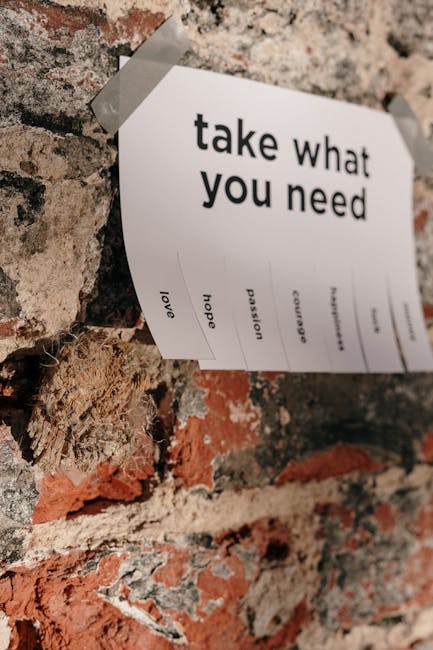
Preparing for a Polygraph Examination: What You Need to Know
Polygraph examinations, commonly known as lie detector tests, are used in various sectors including law enforcement, employment screening, and criminal investigations. While the prospect of undergoing a polygraph test can be daunting, being well-prepared can help you navigate through it more successfully. In this comprehensive guide, we will walk you through everything you need to know about preparing for a polygraph examination.
Understanding the Polygraph Examination
Before diving into preparation tips, it’s crucial to understand what a polygraph examination entails. A polygraph test measures physiological responses such as heart rate, blood pressure, respiration, and skin conductivity while the subject answers a series of questions. The goal is to identify signs of deception based on these physiological changes.
When Are Polygraph Tests Used?
Polygraph examinations are used in a variety of scenarios. According to a 2019 survey by the American Polygraph Association, over 70% of polygraph tests in the United States are conducted for pre-employment screening, particularly in government agencies and law enforcement. Additionally, polygraph tests are used in criminal investigations, security clearances, and even in some civil cases.
How Accurate Are Polygraph Tests?
While polygraph tests are commonly used, their accuracy is a subject of debate. Studies show that polygraph tests have an accuracy rate of about 70-90% in detecting deception. However, factors such as the examiner’s skill and the examinee’s physiological makeup can influence the results. Understanding this can help you approach the test with a balanced perspective.
How to Prepare for a Polygraph Examination
Preparation is key to alleviating anxiety and ensuring you perform well during the polygraph test. Here are actionable tips to help you prepare effectively:
1. Get a Good Night’s Sleep
One of the most important things you can do before a polygraph test is to get adequate rest. Lack of sleep can affect your physiological responses, making it difficult for the examiner to get accurate readings. Aim for at least 7-8 hours of sleep the night before the test.
2. Eat a Healthy Meal
Eating a nutritious meal before your examination can help stabilize your blood sugar levels, which in turn can affect your physiological responses. Avoid caffeine and sugar, as they can increase anxiety and skew the test results. Opt for a balanced meal with protein, complex carbohydrates, and healthy fats.
3. Stay Hydrated
Dehydration can affect your body’s physiological responses. Drink plenty of water leading up to the test, but avoid excessive amounts right before the examination to prevent discomfort.
4. Wear Comfortable Clothing
Choose comfortable clothing that allows for ease of movement. Avoid tight or restrictive clothing that could cause discomfort and potentially affect your physiological responses during the test.
5. Be Honest and Open
Honesty is crucial in a polygraph examination. If you’re nervous about certain questions, discuss your concerns with the examiner before the test begins. Transparency can help build rapport with the examiner and may even help you relax.
6. Practice Relaxation Techniques
Practicing relaxation techniques such as deep breathing, meditation, or progressive muscle relaxation can help you manage anxiety. These techniques can be particularly useful during the test to maintain a steady physiological state.
What to Expect During the Polygraph Examination
Knowing what to expect during the examination can help reduce anxiety. Here is a step-by-step overview of the polygraph test process:
Pre-Test Phase
During the pre-test phase, the examiner will explain the test procedure, discuss the questions that will be asked, and calibrate the polygraph machine. This phase is designed to help you understand what to expect and to establish a baseline for your physiological responses.
In-Test Phase
In this phase, you will be asked a series of questions while the polygraph machine records your physiological responses. The questions will typically include a mix of relevant, control, and irrelevant questions to gauge your truthfulness.
Post-Test Phase
After the test, the examiner will review the results and may ask follow-up questions if any inconsistencies are detected. In some cases, you may receive immediate feedback; in others, the results may be sent to a third party for further analysis.
Common Myths About Polygraph Examinations
There are several myths surrounding polygraph examinations that can add to the confusion and anxiety. Let’s debunk some of the most common myths:
Myth 1: Polygraph Tests Are 100% Accurate
As mentioned earlier, polygraph tests are not infallible. While they can be a useful tool, they are not 100% accurate. Understanding this can help you approach the test with a more balanced perspective.
Myth 2: You Can Beat a Polygraph Test
There are numerous claims and techniques purported to help individuals “beat” a polygraph test. However, these methods are generally ineffective and can lead to more anxiety, which can skew the results. The best approach is to be honest and well-prepared.
Myth 3: Nervousness Equals Deception
It’s natural to feel nervous during a polygraph test. Examiners are trained to differentiate between nervousness and deception, so don’t let anxiety deter you from being truthful.
Conclusion
Preparing for a polygraph examination can be a stressful experience, but with the right preparation and mindset, you can navigate it successfully. By understanding what to expect, following practical tips, and debunking common myths, you can approach the test with confidence. Remember, honesty and preparation are your best allies in a polygraph examination.
For more information on polygraph tests and other related topics, feel free to explore our other blog posts or reach out to a professional polygraph examiner.
